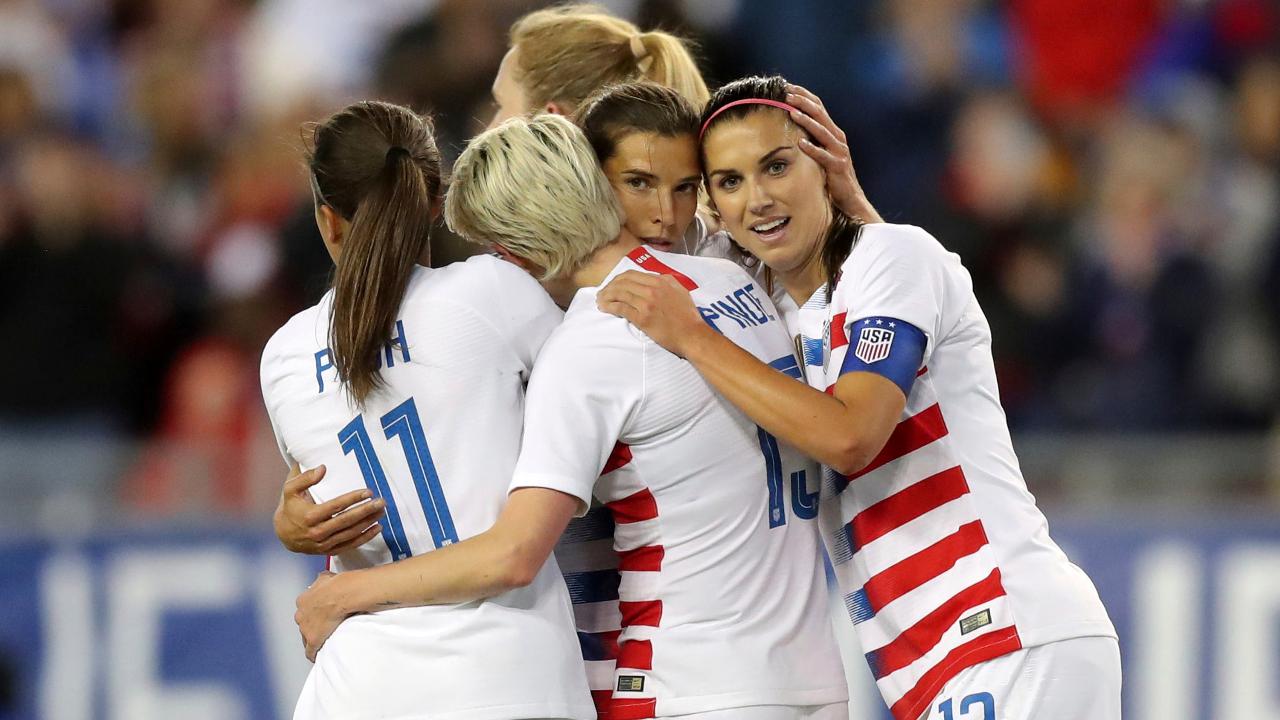Women's World Cup: USWNT's fight for equal pay looms over tournament
The 2019 FIFA Women’s World Cup kicks off Friday even as the defending champion U.S. women’s national team engages in a legal battle to receive the same pay as their male counterparts.
A group of 28 members of the women’s national team, including superstars Alex Morgan and Megan Rapinoe, sued the U.S. Soccer Federation in March, alleging in a federal suit that the governing body has engaged in “institutionalized gender discrimination” and violations of the Equal Pact Act. While the lawsuit cited several instances of alleged pay disparities, U.S. Soccer has rejected the allegations, arguing that any difference in pay is due to separate labor agreements for the men’s and women’s national team.
The lawsuit came after years of mounting scrutiny over pay practices in U.S. soccer, where compensation for the women’s team despite strong performances on the international stage. With a legal resolution to the complex case considered months or even years away, the U.S. women’s national team is focused on their performance at this year’s World Cup in France.
“I think that the huge media splash of the lawsuit is behind us and we’re obviously focused on the World Cup,” Rapinoe recently told reporters. “But also it’s like this is our life, and there are a lot of things that we have to grapple and deal with: Family, friends, partners, media, pressures, games, World Cup, travel. So it’s just kind of just one more thing.”
The gender discrimination lawsuit cites several figures in its argument, including differing bonuses that men and women received during the last World Cup cycle. Men who earned a spot on the U.S. national team for the 2014 World Cup received a $55,000 roster bonus, while women who earned a spot for the 2015 event received just $15,000 each.
Earlier this year, nutrition brand LUNA Bar donated $718,750, or $31,250 for each player, to ensure that women received the same roster bonus as men.
In a response, U.S. Soccer rejected the claim that the pay differences were based on gender, noting that decisions on compensation "with respect to the conduct alleged in the complaint was for legitimate business reasons and not for any discriminatory or other unlawful purpose."
The pay disparity is even more apparent at the World Cup itself, where FIFA, not U.S. Soccer, serves as the governing body. The entire prize pool at this year’s women’s World Cup is $30 million, $4 million of which is earmarked for the victorious team. By comparison, the French men’s national team alone received $38 million for winning the 2018 World Cup, while the total prize pool for that event was $400 million.
Women’s national teams from several other countries are battling for equal pay. Australia’s soccer players union called on FIFA this week to set aside equal prize money pools for the men’s and women’s World Cups. Norway will be without its best player, Ada Hegerberg, who gave up her spot on its national team in 2017 in a dispute over gender inequality.
If U.S. Soccer and the women’s national team are unable to reach a settlement, the next step in the fight for equal pay will hinge on whether the presiding judge grants a dismissal or allows the suit to proceed to pre-trial proceedings, according to Michael McCann, associate dean at the University Of New Hampshire School Of Law.
CLICK HERE TO GET THE FOX BUSINESS APP
“During [pre-trial discovery], U.S. Soccer officials would be required provide sworn statements about how they determine pay with respect to women's and men's players,” McCann said in a post for Sports Illustrated. “They would also be compelled to turn over potentially sensitive—and possibly unflattering—emails, texts and other correspondences. Such disclosures could be referenced in public court filings or leaked to the media. Whether that public relations risk motivates U.S. Soccer officials to offer favorable settlement terms to the players remains to be seen.”
The Associated Press contributed to this report.




















